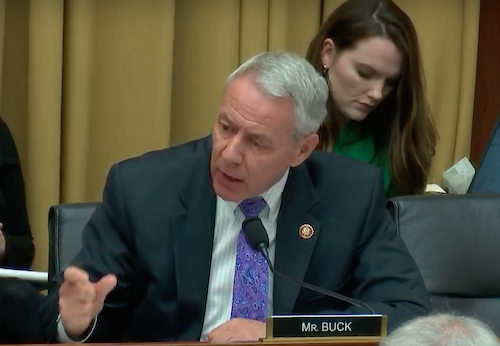The Marijuana Opportunity Reinvestment and Expungement Act of 2019, better known as the MORE Act, would end federal marijuana prohibition while allowing states to regulate the plant as they see fit, as well as set up funding and programs that allow expungement for cannabis offenders and social equity within any potential federally legal pot industry.
Introduced by New York Representative Jerry Nadler, a Democrat, the MORE Act passed 24-10 out of the House Judiciary Committee, setting up a future vote on the House floor. However, Nadler's role as Judiciary Committee chairman enabled the bill's quick markup, and Republican representatives don't seem to think the bill would receive Senate approval if it passes the House. Before the vote, several brought up the States Act, a Senate bill that would leave marijuana legalization to states.
Colorado Congressman Ken Buck unsuccessfully tried attaching the States Act as an amendment to the MORE Act, claiming the Senate isn't likely to touch the latter.
"We have failed for years to raise this issue in a responsible way," Buck said. "The right bill would pass the House in a way that would demand Senate action. When it comes to a bill like this, they would not address it."

Colorado Representative Ken Buck has never been a fan of marijuana legalization.
judiciary.house.gov
Democrats on the committee argued that Congress has done little to address marijuana policy reform over the past several decades, and didn't approve of language in the States Act that still permits federal drug charges in states that wouldn't allow legal marijuana.
According to Colorado Representative Joe Neguse, who is also a member of the committee, states with medical and recreational marijuana still need federal legalization to advance industry evolution and medical research.
“Since the legalization of cannabis in Colorado, our state has developed a robust industry, generating over $927 million in state and local tax fees and over $6 billion in total sales. Even still, there remain barriers at the federal level that hinder the ability of the cannabis industry to function under federal law," he says in a statement. “I applaud the work of Chairman Nadler to end the prohibition of cannabis at the federal level through this legislation and to correct long-felt injustices for cannabis-related offenses in the criminal justice system. In Colorado, this legislation will allow a unique opportunity for researchers to study the health impacts of cannabis and promote public policies that allow for continued growth and opportunity in this industry.”
Although Congress has been slow to address cannabis, it has been making some progress as of late. Colorado Representative Ed Perlmutter's Safe Banking Act, a measure that would allow banks and financial institutions to serve state-legal marijuana companies, passed the House in September. Less than a week later, Perlmutter told a room of marijuana regulators and industry members that he was confident of the bill's chances in the Senate.












